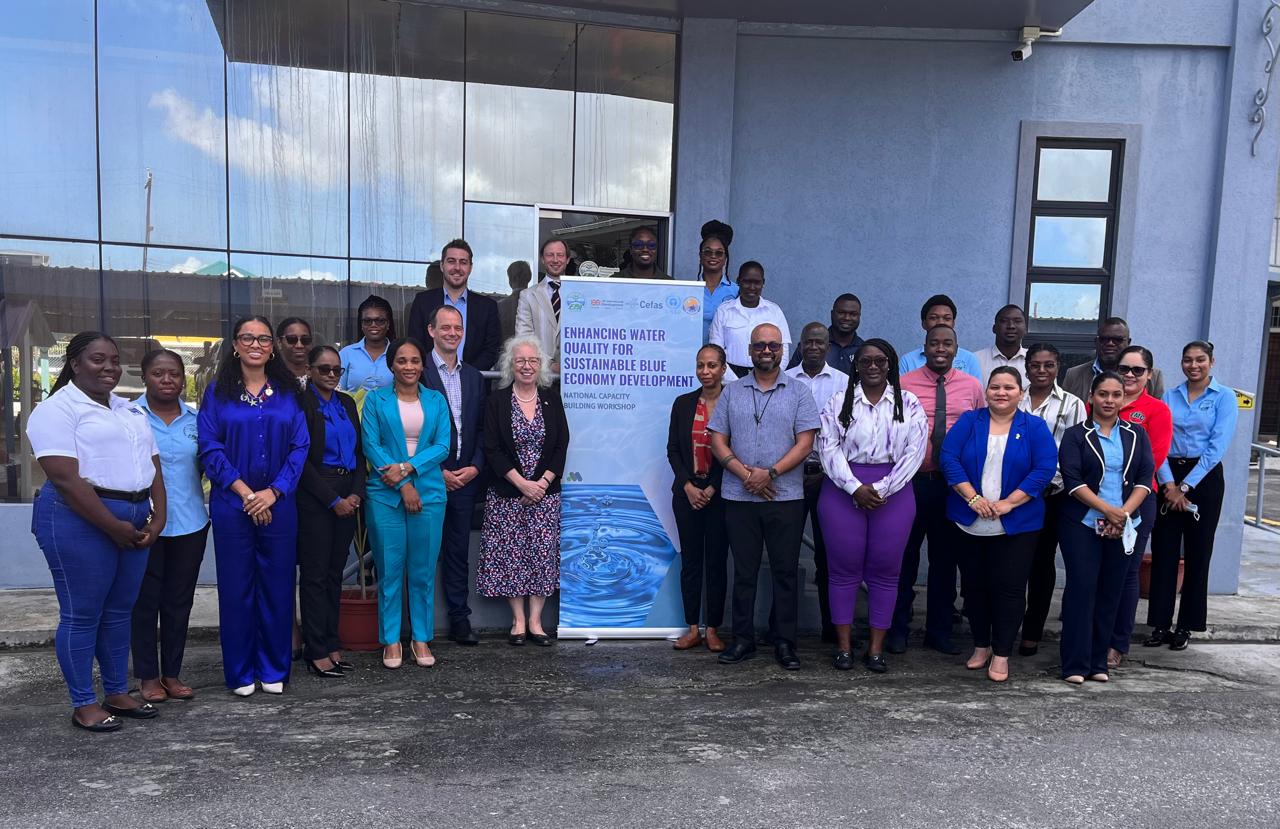Georgetown, Guyana – 20th June 2025
Representatives from the Government of Guyana and the United Kingdom came together this week to launch the next phase of joint work to address marine pollution and support the sustainable development of Guyana’s Blue Economy.
The visit, held from 16–20 June, is part of the “Enhancing Water Quality for Sustainable Blue Economy Development” project—an initiative supported by the UK Government through the Sustainable Blue Economies Technical Assistance Platform. The project is being implemented by the UK’s Centre for Environment, Fisheries and Aquaculture Science (Cefas), in collaboration with Guyana’s Environmental Protection Agency (EPA) and the United Nations Cartagena Convention Secretariat.
A key highlight of the visit was a two-day National Workshop on the Blue Economy and Marine Pollution (17–18 June), hosted at the EPA Head Office. The workshop brought together officials from various ministries and agencies to exchange knowledge and perspectives on national Blue Economy goals, pollution risks, and priority actions for pollution management and investment.
In her address to participants, British High Commissioner Jane Miller highlighted UK’s support to Guyana to develop its Maritime Economy Plan (MEP) which was launched in 2021. This plan, part of Guyana's broader Low Carbon Development Strategy (LCDS) 2030, focuses on identifying key sectors within the maritime industry and creating tailored action plans to address gaps, overcome obstacles, and build capacity.
She noted that the MEP was designed to lay the foundation for continued dialogue and action to support Guyana in advancing work towards the development and protection of its ocean resources.
High Commissioner Miller said, “together you will brainstorm ways to strengthen Guyana’s national capacity to assess and manage marine pollution, thereby safeguarding the country’s marine and coastal resources.”
EPA Executive Director Kemraj Parsram emphasized the significance of the collaboration, “Our partnership with the UK Government, the British High Commission, Cefas, and the Cartagena Convention Secretariat is more than technical cooperation—it is a model of meaningful collaboration. Together, we are building the scientific capacity, institutional strength, and regional alignment necessary to protect our marine and coastal ecosystems. This initiative is helping to ensure that all Guyanese—from coastal communities to national agencies—are equipped to lead, respond, and innovate in safeguarding water quality and advancing our Blue Economy goals.”
The workshop was followed by two days of stakeholder engagement and planning meetings (19–20 June), involving community representatives, technical experts and project partners.

The project, which will continue through 2025, is currently focused on conducting a national situation analysis to map existing knowledge and identify priority pollution risks. This analysis will inform the development of technical solutions and investment strategies aligned with Guyana’s sustainable ocean and coastal development ambitions.
Dr. Will Le Quesne, Director of the International Centre for Ocean Protection and Use at Cefas, added, “Protecting the health of the marine environment is critical to Guyana’s development goals. This partnership with Cefas and the UK Government strengthens the international collaboration needed to ensure the world’s oceans continue to support our people and economies for generations to come.”
This initiative marks a significant step in the UK’s support for climate-resilient development in Small Island Developing States (SIDS), leveraging world-class UK marine expertise to co-develop practical tools and strategies for sustainable marine resource use.
- Log in to post comments